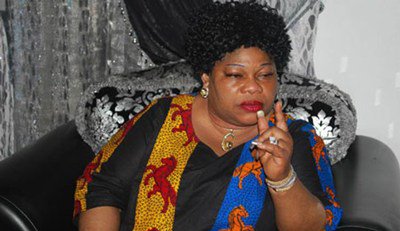The former chairman of Nigeria Security Insurance Trust Fund ( NSITF ), Dr. Ngozi Olejeme, said on Tuesday she has nothing to do with the finance committee of ex- President Goodluck Jonathan’s campaign organization.
In a statement issued by her media aide, Stanley Imoko, the ex-NSITF said contrary to reports that she was arrested by the Economic and Financial Crimes Commission (EFCC) over alleged N69billion fraud, she submitted herself before the Commission to clear the wrong allegations against her.
Olejeme said the allegations that led to her arrest was purely about where she worked as part time chairman of NSTIF and has nothing to do with Jonathan’s campaign organisation as alleged.
The statement reads: “Our attention has been drawn to erroneous media reports about the circumstance surrounding the issues Dr. Ngozi Olejeme is currently having with the Economic and Financial Crimes Commission (EFCC).
“While we recognise the constitutional right of the media to inform the public, we are inclined to set the records straight by stating what has transpired so far between Dr. Ngozi Olejeme and the EFCC.
“Dr. Olejeme who was declared wanted three months ago by EFCC for alleged diversion of several billions of Naira in NSITF where she was a part time chairman during the last administration turned herself in voluntarily to EFCC on Monday, the 18th of December, 2017 in order to clear her name which the alleged story of diversion tried to smear.
” Dr. Olejeme was appointed a part time chairman of the agency when the agency was moribund and comatose having been divested of its core responsibility of managing pension funds of Nigerian workers by the New Reform Pension Act of 2004 .
“Dr. Olejeme’s dexterity saw the enactment of a new law by the National Assembly that gave some responsibilities (like social scheme compensation for employees who suffer injury or death in the course of their duties) to the agency and which resurrected the agency back to life.
“The agency that had only two functional offices when she was appointed witnessed a tremendous growth both in offices across the length and breadth of Nigeria and personnel from 80 employees to about 7,000 by the time she exited from the board.”
